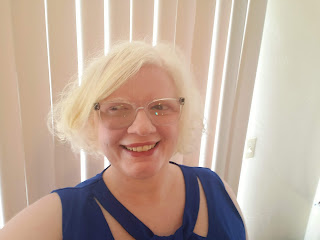Going to school as a legally blind child

One thing that Antonia and her older sister, Marga, always had in common was their love of books. Accessibility: Two girls sitting on a couch, smiling and holding thick books. The one on the left is a younger Antonia with long platinum hair in a pony tail. On the right, a blonde with short wavy hair and glasses. I have been asked a few times to share my experience of getting through school with a severe visual impairment so, since everyone is starting to think about going back to school, I thought this was the perfect time for it. I want to start by saying that I grew up in the 90s and early 2000's in Spain, so my experiences were most definitely different than those of kids getting ready to go back to school in the U.S. right now. However, if anything, I hope that the takeaway from this blog isn't so much how the school dealt with my visual impairment but how I coped with it as a legally blind child. As a legally blind student I received a lot of the support...





